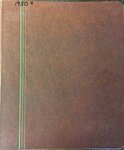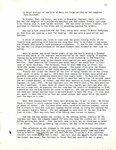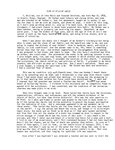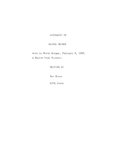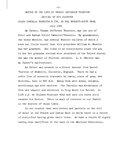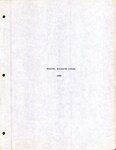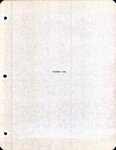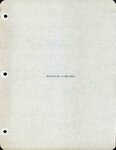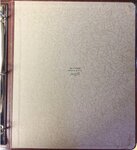| Title |
011_Pioneer Histories Compiled by Morgan Company (DUP Book 8b) |
| Contributors |
Daughters of Utah Pioneers, Morgan County |
| Description |
In the early part of the 1900s Daughters of Utah Pioneers historians interviewed pioneers and their children and wrote or gathered the histories. |
| Biographical/Historical Note |
This book contains Morgan County histories and documents that were shared in meetings of the Daughters of Utah Pioneers in the 1950s. Many of these histories are available because of Mary Chadwick's efforts to interview pioneers or their children circa 1920-1930. |
| Subject |
Morgan County (Utah)--History; Mormon pioneers |
| Digital Publisher |
Stewart Library, Weber State University, Ogden, Utah, USA |
| Date Original |
1950 |
| Date |
1950 |
| Date Digital |
2017 |
| Temporal Coverage |
1845; 1846; 1847; 1848; 1849; 1850; 1851; 1852; 1853; 1854; 1855; 1856; 1857; 1858; 1859; 1860; 1861; 1862; 1863; 1864; 1865; 1866; 1867; 1868; 1869; 1870; 1871; 1872; 1873; 1874; 1875; 1876; 1877; 1878; 1879; 1880; 1881; 1882; 1883; 1884; 1885; 1886; 1887; 1888; 1889; 1890; 1891; 1892; 1893; 1894; 1895; 1896; 1897; 1898; 1899; 1900; 1901; 1902; 1903; 1904; 1905; 1906; 1907; 1908; 1909; 1910; 1911; 1912; 1913; 1914; 1915; 1916; 1917; 1918; 1919; 1920; 1921; 1922; 1923; 1924; 1925; 1926; 1927; 1928; 1929; 1930; 1931; 1932; 1933; 1934; 1935; 1936; 1937; 1938; 1939; 1940; 1941; 1942; 1943; 1944; 1945; 1946; 1947; 1948; 1949; 1950; 1951; 1952; 1953; 1954; 1955; 1956; 1957 |
| Item Size |
9.5x11 inches |
| Medium |
histories |
| Item Description |
3-ring binder. This book consists of 106 pages, minus 26 missing pages--page numbers 72 to 97. The remaining 80+ pages contain histories and historic documents, typewritten or handwritten on numbered, round-cornered pages. |
| Spatial Coverage |
Morgan County, Utah, United States, http://sws.geonames.org/5778525/ |
| Type |
Text |
| Conversion Specifications |
Archived TIFF images were scanned with a Kodak PS50 scanner. Transcription by Amy Higgs using ABBYY Fine Reader. JPG and PDF files were then created for general use. |
| Language |
eng |
| Rights |
Materials may be used for non-profit and educational purposes; please credit Morgan County Daughters of Utah Pioneers, Morgan, Utah. |
| Source |
Daughters of Utah Pioneers, Morgan County |
| Format |
application/pdf |
| ARK |
ark:/87278/s6b7f78z |
| Setname |
wsu_mdupc |
| ID |
47852 |
| Reference URL |
https://digital.weber.edu/ark:/87278/s6b7f78z |

